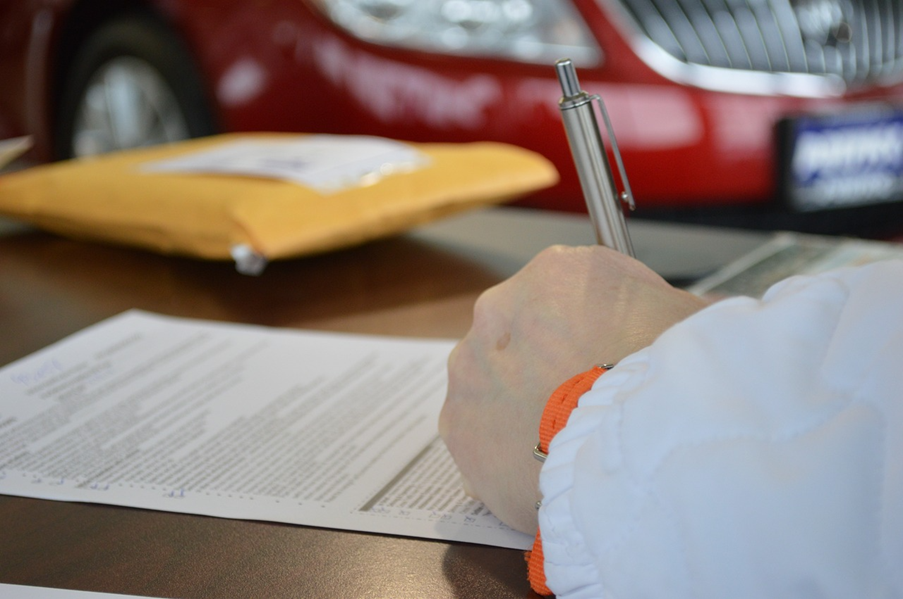4 Vital Details to Know About the Funding Fee for VA Cash Out Refinance Loans
The funding fee for a VA cash out refinance loan can be puzzling for many Veterans. With various exemptions and rates, it's easy to get confused.
At NewDay USA, our main focus is VA loans, and the VA Cash Out Refinance Loan is one of our main offerings.
As we assist eligible borrowers with this loan, we sometimes come across misconceptions and uncertainty related to the funding fee, for example, how much needs to be paid, by whom, and when.
In this guide, we aim to debunk common misunderstandings by answering the following key questions:
- How is the funding fee different from Private Mortgage Insurance (PMI) and Mortgage Insurance Premiums (MIP)
- Can you claim a funding fee exemption?
- Is the funding fee the same across all types of VA loans?
- Can you finance the funding fee into your loan amount?
Continue reading so that you can better understand the VA loan benefit and required funding fees and make a more informed decision about your VA cash out refinance loan!

1. The VA Funding Fee is Not the Same as Mortgage Insurance
The nature of the VA funding fee, private mortgage insurance (PMI), and mortgage insurance premiums (MIP), often get mixed up. This can lead to confusion. It’s important to understand that they are entirely distinct types of loan-related expenses with different purposes. Additionally, each is applicable to a specific loan type.
Here is a brief overview of VA funding fee, PMI, and MIP:
-
VA Funding Fee: This fee is unique to loans backed by the Department of Veterans Affairs. It is a one-time charge and a part of the closing costs of the loan. Its primary objective is to help alleviate the overall cost of the loan borne by U.S. taxpayers.
- Private Mortgage Insurance: PMI differs significantly from the VA funding fee. The main distinctions are that it’s a monthly fee, not a one-time fee, and it applies to conventional loans, not VA loans. It serves as a form of protection for lenders, shielding them from potential losses arising from loan defaults. PMI applies to conventional cash out refinance loans when the total amount borrowed is greater than 80% of the home’s value and to conventional home purchase loans when the down payment is less than 20% of the purchase price.
- Mortgage Insurance Premium: MIP is a mandatory insurance applicable to all FHA-backed cash out refinance loans. Unlike PMI, it will need to be paid irrespective of the amount of equity a borrower is withdrawing, even if it is only 10% of the home’s equity. The MIP cancellation date is determined by the LTV borrowed and will either be for the life of the loan or the first 11 years. MIP is a two-part fee, comprising an upfront one-time payment and an annual premium that is split into monthly payments. The reason for this charge is to provide extra protection to lenders due to the nature of FHA loans. These loans often have lower down payment and credit score requirements compared to some conventional loans.
|
Fee/insurance Name |
Payment frequency |
Applicability |
Purpose |
|
VA Funding Fee |
One-time |
VA-backed loans |
Reduce the cost of the VA loan benefit borne by U.S. taxpayers |
|
Private Mortgage Insurance (PMI) |
Monthly |
Conventional loans (with more than 80% home equity financed) |
Protection for lenders from potential losses arising from loan defaults |
|
Mortgage Insurance Premium (MIP) |
Two-parts: Upfront & annual (annual payment split into 12 equal parts and added to monthly payments) |
FHA-backed loans |
Extra protection to lenders; Applied to loans with lower down payment and credit score requirements |
2. Certain Borrowers Are Eligible for Funding Fee Exemptions
A key point to remember is that not everyone is required to pay the VA funding fee. There are certain scenarios where a borrower can be exempt, including:
- Disability Compensation: If you are receiving VA compensation for a service-connected disability, you are exempt from the VA funding fee.
- Eligible for Compensation: You may also be exempt if you are eligible to receive VA compensation for a service-connected disability, but you are receiving retirement or active-duty pay instead.
- Surviving Spouse: If you are the surviving spouse of a Veteran and receiving Dependency and Indemnity Compensation (DIC), you will not have to pay this fee.
- Pre-Discharge Claim: If you are a service member who has received a proposed or memorandum rating before the loan closing date that indicates you're eligible to get compensation due to a pre-discharge claim, you are exempted from the VA funding fee.
- Purple Heart Recipient: Service members on active duty who, before or on the loan closing date, provide evidence of having received the Purple Heart are also exempt from paying the VA funding fee.
Additionally, borrowers may be eligible for a refund of the VA funding fee if they are later awarded VA compensation for a service-connected disability, subject to certain conditions.
3. Funding Fee Varies Based on VA Loan Usage Frequency
For Veterans considering the use of their VA loan benefit via a VA cash out refinance loan, the applicable VA funding fee varies depending on the number of times they have utilized this benefit in the past.

If a Veteran is utilizing their benefit for the first time (or if their entitlement is fully reinstated), they will incur a slightly lower fee compared to those who are using it for the second or subsequent time.
Here is a simple breakdown:
- First Use: A VA funding fee of 2.15% is applicable.
- Subsequent Uses: The VA funding fee increases to 3.3%.
During a home purchase, it is possible to negotiate with the seller to cover part of your closing costs. This is known as a seller concession, and it can encompass the funding fee.
However, as the concept of a seller concession doesn't exist in the context of a VA cash out refinance loan, the responsibility of paying the funding fee falls entirely on you.
4. You Don’t Need to Pay Funding Fee Upfront
The VA funding fee is considered a component of the loan's closing costs, distinct from your regular monthly mortgage payments.
You have the choice of settling this fee outright during the closing of the loan, or you can choose to incorporate it into your total loan amount, which distributes the cost over the life of the loan.
That said, it is important to remember that financing the funding fee into the total loan amount may increase the total cost of your loan. So, it is always a good idea to carefully consider your options before deciding on the payment method for the VA funding fee.
Wrapping Up
A VA funding fee is an integral part of the VA cash out refinance loan process. Although it may seem complex, your lender will be able to guide you and help you understand how much you need to pay, if anything, depending on your specific situation. If you have more questions about the VA funding fee or VA cash out refinance loans, call us at 888-985-1489.
NewDay USA-NMLS#1043

